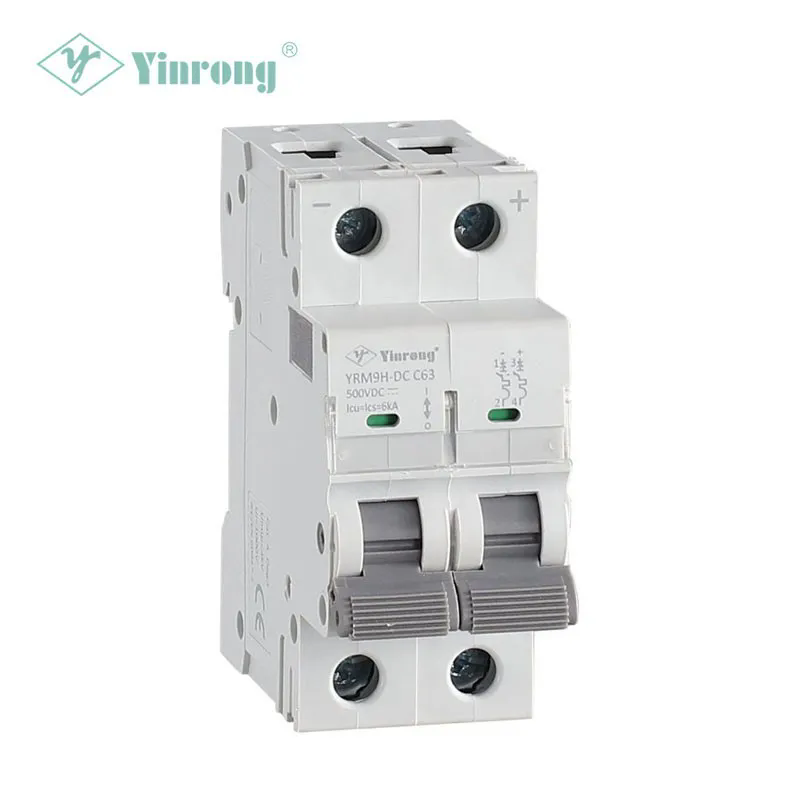DC Circuit Breaker: Your Questions Answered
2024-10-30
DC circuit breakers play a crucial role in electrical systems, providing protection and safety for various applications. In this blog post, we’ll explore some common questions about DC circuit breakers to enhance your understanding of their function, importance, and applications.
What is a DC Circuit Breaker?
A DC circuit breaker is a protective device designed to interrupt the flow of direct current (DC) in an electrical circuit when an overload or fault occurs. Unlike AC circuit breakers, which handle alternating current, DC circuit breakers must manage continuous current flow and are specifically designed to address the unique challenges associated with DC circuits.
How Does a DC Circuit Breaker Work?
DC circuit breakers operate by detecting abnormal current levels and interrupting the circuit to prevent damage. When a fault occurs, such as a short circuit, the breaker senses the excessive current and opens the circuit, stopping the flow of electricity. This action helps protect the electrical components from overheating and potential damage.
What Are the Main Types of DC Circuit Breakers?
1. Magnetic Circuit Breakers: These breakers use electromagnetic forces to trip the circuit when excessive current flows. They are fast-acting and effective for high-current applications.
2. Thermal Circuit Breakers: These rely on a bimetallic strip that bends when heated by excessive current. Once it reaches a certain temperature, it trips the circuit.
3. Hybrid Circuit Breakers: Combining both thermal and magnetic mechanisms, hybrid circuit breakers offer enhanced protection and faster response times.
What Are the Advantages of DC Circuit Breakers?
1. Protection Against Overloads: DC circuit breakers provide essential protection against overloads and short circuits, safeguarding equipment and wiring.
2. Improved Safety: By quickly interrupting faulty circuits, these breakers help prevent electrical fires and equipment damage, ensuring safety in various applications.
3. Versatile Applications: DC circuit breakers are suitable for a range of applications, including renewable energy systems (like solar panels), electric vehicles, and telecommunications.
4. Compact Design: Many modern DC circuit breakers are designed to be compact, making them suitable for space-constrained environments.
Where Are DC Circuit Breakers Commonly Used?
DC circuit breakers are used in several applications, including:
- Solar Power Systems: Protecting solar inverters and battery systems from faults.
- Electric Vehicles: Ensuring the safety of high-voltage battery systems.
- Telecommunications: Protecting power supplies in telecom equipment.
- Industrial Equipment: Safeguarding machinery that operates on DC power.
How Do I Choose the Right DC Circuit Breaker?
When selecting a DC circuit breaker, consider the following factors:
1. Current Rating: Determine the maximum current the circuit will carry and choose a breaker that can handle this load safely.
2. Voltage Rating: Ensure the breaker is rated for the specific DC voltage of your application.
3. Tripping Characteristics: Assess whether you need a thermal, magnetic, or hybrid breaker based on the application's nature.
4. Environment: Consider the environmental conditions (temperature, humidity, exposure to dust or chemicals) where the breaker will be installed.
Are There Any Limitations to DC Circuit Breakers?
Yes, DC circuit breakers have some limitations:
- Higher Arcing: DC circuits can create higher arcing during interruption due to the constant current flow, requiring specialized designs for effective interruption.
- Size and Weight: While many are compact, some high-capacity breakers may be larger and heavier compared to their AC counterparts.
- Cost: DC circuit breakers can be more expensive than AC circuit breakers due to their specialized design and materials.
Conclusion
DC circuit breakers are essential components for protecting electrical circuits in various applications, from renewable energy systems to electric vehicles. By understanding their function, advantages, and limitations, you can make informed decisions about their use in your projects. If you have any further questions about DC circuit breakers, feel free to ask!



